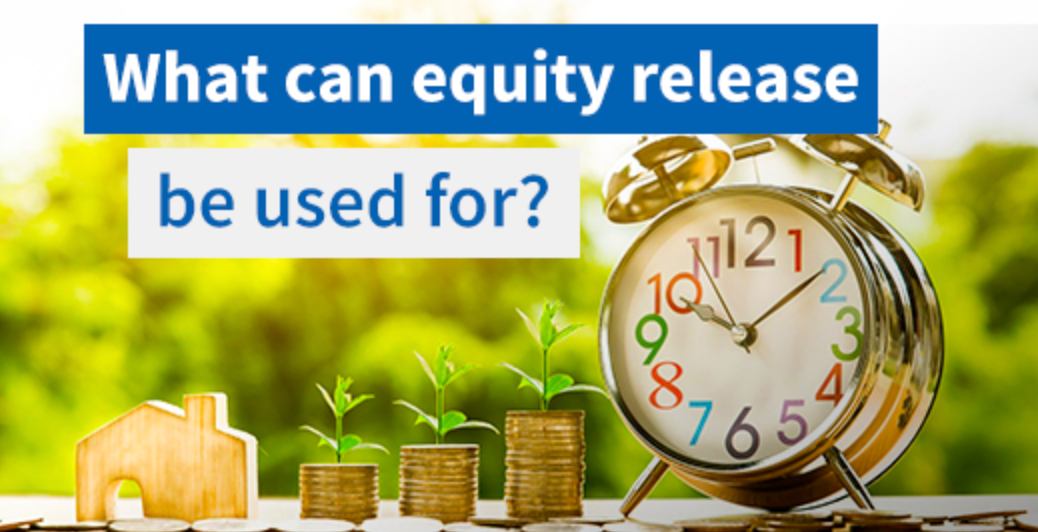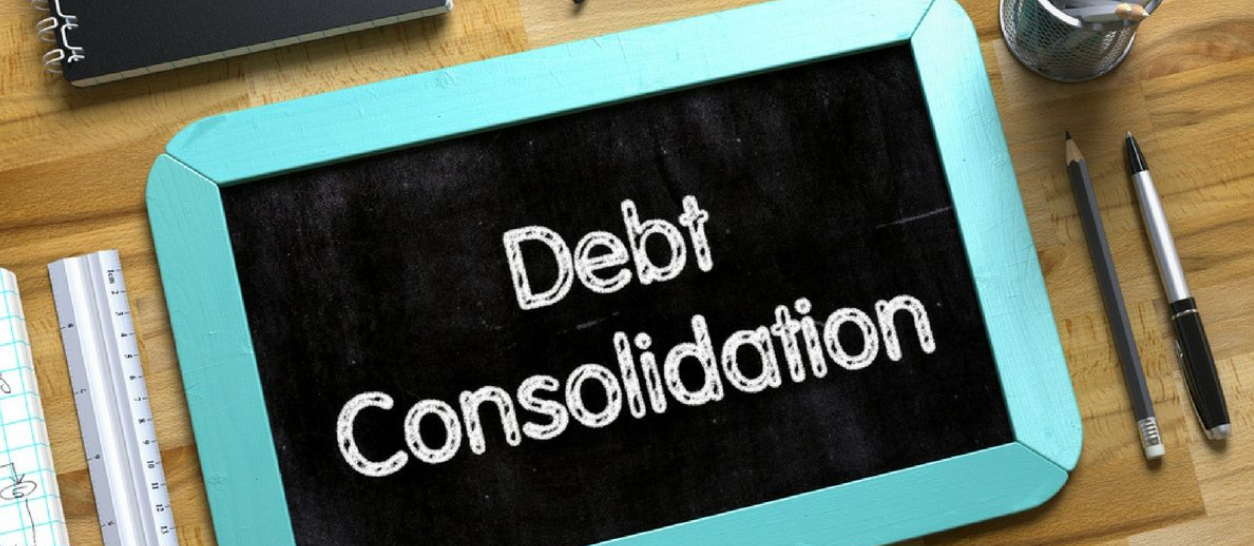
As a homeowner, you’ve invested a lot of time, a lump sum of money, and effort into your home. Over time, the value of your home (known as equity) has hopefully appreciated, and you’ve built up enough equity in your property to be able to improve your financial position moving forward.
So what if you need a lump sum of extra cash now? Maybe you want to pay off high-interest debt, fund a home renovation, or invest in your future. Should you consult a mortgage broker or financial advisor? What are the next steps?
In these situations, refinancing with a release of equity may be an option worth considering.
What is a Cash-Out Refinance home loan?

A cash-out refinance home loan also referred to as a home equity loan, is where you use your existing mortgage/loan amount to borrow more than what you currently owe and receive the difference in cash, which you can then use for multiple reasons. We will go through the reasons you should and should not use cash out refinancing.
Essentially, you’re taking out a new mortgage for a larger amount than your current mortgage, you are asking your existing lender for the equity that has been built up in your property to be given to you in cash.
The cash you receive can be used for multiple purposes, such as paying off debt like a personal loan, making home improvements, or investing in your future via purchasing other assets like an investment property and/or shares.
How does Cash-Out Refinancing Work?

The process of a cash-out refinance is similar to traditional refinancing of a home loan, but with a few key differences. Here are the steps involved in a cash-out refinance:
Evaluate your home’s equity
Before you can apply for a cash-out refinance on your existing home loan, you’ll need to determine how much equity you have in your property.
A broker or your existing lender will be able to assist you with this by running a valuation to get an accurate understanding of your property value.
Equity is the difference between what you owe on your mortgage and the current value of your home. For example, if you owe $150,000 on your mortgage and your home is worth $250,000, you have $100,000 in equity.
Shop around for lenders
Once you know how much equity you have in your home, you’ll need to shop around for lenders that offer cash-out refinance product.
Look for lenders that offer competitive interest rates, flexible terms, and excellent customer service.
Case Study of how a cash out refinance works
John and Jane had been paying off their original loan for several years and had accumulated a decent amount of equity in their home.

They were looking to do some home renovations and also had some high-interest credit card debt that they wanted to close, however the balance and interest was high and eating into their monthly house hold budget, so they were struggling to get on top of the repayments.
They reached out to a mortgage broker to see the best way forward and if there were any options available to them.
After some research, their mortgage broker suggested they consider a cash-out refinance. This would allow them to refinance their current mortgage for access to larger amount of capital.
These extra funds would give them extra cash that they could use to pay off their credit card debt, reduce their interest rate which would reduce their overall interest bill for their home loan and add value to their property via the renovation.
They were able to refinance their mortgage for $200,000, which included their current mortgage balance of $150,000, plus an additional $50,000 in cash which was used towards the renovations as well as the credit card balance.
Overall, working with the guidance of the mortgage broker, this move helped John and Jane navigate the complex process of a cash-out refinance with ease, and put them in a better financial position by unlocking their home equity and keep their credit score intact.
Apply for the home loan
Once you’ve chosen a lender, you’ll need to apply for the cash-out refinance loan. This typically involves submitting an application, providing documentation (such as income statements and credit reports), and having your home revalued.
Close the loan: If you’re approved for the loan, you’ll need to close on the cash-out refinance. This involves signing new loan documents, paying discharge costs (if you are leavings your existing lender), and having the funds disbursed to you by the lender.

There are several benefits to a cash out refinance home loan. Here are a few:
Access to cash
The most obvious benefit of a cash-out refinance is that it gives you access to cash that you can use for whatever you need.

Whether you want to pay off debt, make home improvements, or invest in your future, a home equity loan can help you achieve your goals.
Lower interest rates
If you have high-interest debt, such as credit card debt, releasing equity in your home can help you lower your interest rates by paying out these debts and amalgamating them into your home loan which is typically a lower interest rate.

Tax benefits
In some cases, the interest you pay on your mortgage is tax-deductible (property investment or shares). If you use the cash from a cash-out refinance to pay off high-interest debt, you may be able to deduct the interest on your taxes, which can save you money. Please speak to your accountant to see if this is relevant to your situation.

When Should You Consider a Cash-Out Refinance home loan?
A cash-out refinance home loan isn’t the right choice for everyone, but there are some situations where it can be a great move that suits your financial situation.
Here are a few scenarios where you may want to consider a cash-out refinance home loan for your financial circumstances.
Home renovations
If you’re planning to make significant home improvements, such as a kitchen or a bathroom renovation, cash-out refinancing can provide the funds you need to pay for the project.
Not only can this improve the functionality and aesthetics of your home, but it can also increase its value.
Debt consolidation
If you have high-interest debt, such as credit card debt, cash-out refinancing can help you consolidate your debt and lower your interest rates.

This can make it easier to manage your debt, increase cash flow in your monthly house hold budget and save money on interest payments.
We always recommend that people consolidate debts if they are eating a sizeable part of your income, that way you can this cash you saving on investing in your future.
Tertiary education
If you have children who will be attending university in the future, cash-out refinancing can provide the funds you need to pay for their education. With rising costs, this can be a significant financial burden for many families so releasing equity can assist.
Starting a business
If you’re an entrepreneur or want to start a business, cash-out refinancing can provide the initial capital you need to get started. This can also be a great way to invest in your future and build wealth.
Reasons you should not refinance
You don’t have enough equity
We recommend that you do not refinance unless your loan value ratio (LVR) is sitting between 0-80%.
Anything above 80% LVR will incur a significant increase in costs such as lender’s mortgage insurance (LMI). Also interest rate for loans above 80% LVR are much higher than belo 80%, the reason for this is that these loans are viewed as a greater risk to the lender.
Your money management skills need improving:
You need to be honest with yourself and look at the home equity you have created and ask yourself if your plans to release this equity is going to add value to your financial situation or become an additional burden. You are taking on a new loan and will need to manage this accordingly.
You have not taken the costs into consideration
Your loan establishment fees range in price depending on which lender you choose and also what your existing mortgage lender will charge you in the way of mortgage discharge fees. Also if you keep your loan term the same and increase the loan amount, your monthly payments will increase.
Your existing home loan debt could be extended causing your overall interest amount to increase.
If you decide to extend your home loan term, e.g from 25 years out to 30 years, this will increase your interest costs significantly even though your monthly payment has decreased.
You have a bad credit score
Your credit score is going to have an impact on whether your loan is approved or not. We recommend that you order a credit score report first before you consider applying for a home equity loan. You can apply for your credit score report via Equifax.
Due Diligence needs to be carried out

We always recommend that you do your due diligence when making decisions that will affect your financial position and this is no different.
Speak with a broker
Seek out the best broker who will be able to look at your overall position and give you a strategy moving forward and help guide you towards the best lender for your goals.
An accountant
To make sure that your decision does not have any negative impact on you and your family moving forward.
You need to compare home loans
Fixed interest rates
If you are looking to release equity in your home and you have a fixed interest rate loan, you will need to break this home loan if you are planning on switching lenders.
If you plan on staying with the same lender and simply do a top up loan, the existing lender will simply add another loan amount to your existing loan usually in the form of a new loan number (separate loan amount) alongside your original loan.
Choosing the Right Lender
If you’ve completed your due diligence and have decided that cash-out refinancing is the right choice for you, it’s important to choose the right lender. Here are a few factors to consider when selecting a lender:
Reputation
Look for a lender with a good reputation in the industry. Check online reviews and ask for references from friends and family.
Interest rates
Compare interest rates from multiple lenders to ensure you’re getting the best deal. Even a small difference in interest rates can add up to thousands of dollars over the life of the loan.
Customer service
Choose a lender that provides excellent customer service. You want to work with a lender that is responsive to your needs and can answer your questions in a timely manner.
Mortgage Discharge Fees
Be sure to ask about the discharge fees associated with leaving your existing lender (should that be what you have decided to do). These costs can vary significantly between lenders, so it’s important to factor them into your decision to make sure that you are still making a viable decision.
Another thing you need to check is to see if your existing lender is the best option for you. We would recommend that you compare home loans and check the market to see what products are available.
You may not be able to offer you the best deal when you request a top up loan and you may be better off leaving and going to another lender to borrow money. E.g some lenders have a different rate for personal loans and cash out refinance loans.
Also most lenders will give you a better deal on a new mortgage than your existing lender

Conclusion
Cash-out refinancing can be a powerful tool for unlocking the value in your property and accessing the home equity you’ve built up over time.
Whether you’re looking to increasing value to your property, consolidate debt be getting rid of personal loans, reduce your interest rate/mortgage repayments or invest in your future, cash-out refinancing can provide the funds you need to achieve your goals.
If you’re considering releasing your home equity, be sure to weigh the benefits and drawbacks carefully, and choose the best broker to help you navigate the process.
With the right strategy and guidance, you can use cash-out refinancing to unlock the full potential of your home and achieve your financial goals.
FAQs for Cash-Out Refinancing
Cash-out refinancing involves replacing your existing mortgage with a new one that is higher than your current loan balance, allowing you to take the difference in cash.
In cash-out refinancing, you take out a new mortgage for more than you owe on your existing one. The new loan pays off the old loan, and you receive the difference in cash, which can be used for various purposes.
Benefits include accessing cash for home improvements, debt consolidation, education expenses, or other financial needs. It can also allow you to take advantage of lower interest rates or better loan terms.
Risks include potentially higher monthly payments, increased overall debt, and the risk of foreclosure if you cannot meet the new loan obligations. It’s important to assess your financial situation carefully.
The amount you can borrow depends on your home equity and the lender’s policies. Typically, lenders allow you to borrow up to 80% of your home’s appraised value, minus what you owe on your mortgage.
You can use the cash for various purposes, including home renovations, paying off high-interest debts, funding education, investing in property, or covering emergency expenses.
Qualification requirements typically include a good credit score, sufficient home equity, stable income, and a low debt-to-income ratio. Lenders will assess your overall financial health.
Yes, cash-out refinancing involves closing costs similar to those of your original mortgage, including appraisal fees, loan origination fees, and other associated costs. These fees can be rolled into the new loan.
The process usually takes 30 to 45 days, depending on the lender and the complexity of your financial situation. It involves appraisal, underwriting, and approval stages.
The interest on the new loan may be tax-deductible if the funds are used for home improvements. Consult a tax advisor to understand the specific tax implications for your situation.
If you use the cash to pay off high-interest debt, it can improve your credit score by reducing your overall debt burden. However, taking on a larger mortgage may initially impact your credit score.
Cash-out refinancing replaces your existing mortgage with a new one, while a home equity loan is a second mortgage that uses your home as collateral. Both allow you to access your home equity, but they have different terms and structures.
Yes, you can refinance again, but you’ll need to meet the lender’s criteria, and there may be restrictions based on the timing of your previous refinance. Consult with your lender for specific guidelines.
Yes, consulting a financial advisor or mortgage broker can help you understand the pros and cons, assess your financial situation, and determine if cash-out refinancing is the best option for your needs.

TORI DUNLAP
Tori is a finance blogger and researcher at OurTop10.com.au, where she enjoys helping people navigate the world of finance and money. Through her insightful articles and comprehensive research, she empowers readers with valuable knowledge on budgeting, saving, investing, and retirement planning.
Tori’s approachable and empathetic style makes complex financial concepts relatable and easier to understand, She aims to foster a sense of community and leave a lasting, positive impact on her audience’s financial well-being.

